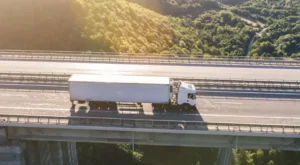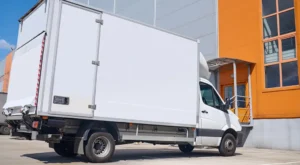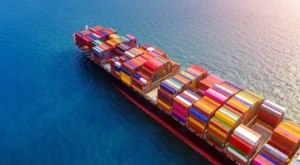Freight, the backbone of global trade and commerce, encompasses a wide array of goods transported across various modes. Understanding the different types of freight is crucial for businesses and individuals alike, as it directly impacts logistics, costs, and overall efficiency.
Freight, in its simplest form, refers to the transportation of goods from one location to another. In today’s interconnected world, the movement of goods is a vital component of the global economy. The ability to distinguish between the various types of freight ensures effective management and optimal delivery processes.
Understanding Freight
Freight, also known as cargo, can be anything from raw materials to finished products. The evolution of freight transportation has seen significant changes, with advancements in technology, transportation modes, and logistics management.
 Dry Freight
Dry Freight
Dry freight typically includes non-perishable goods such as electronics, clothing, and furniture. These goods are transported in standard containers, protecting them from external elements.
 Reefer Freight
Reefer Freight
Reefer freight involves the transportation of perishable goods, such as fruits, vegetables, and pharmaceuticals. Temperature-controlled containers maintain the freshness of these items during transit.
 Flatbed Freight
Flatbed Freight
Flatbed freight is ideal for oversized or irregularly shaped cargo. It offers an open and accessible platform, making it suitable for items like machinery and construction materials.
 Bulk Freight
Bulk Freight
Bulk freight involves the transportation of unpackaged goods, such as liquids, grains, or minerals, usually loaded directly into the cargo hold without packaging.
Specialised Freight
Hazardous Materials Freight
The transportation of hazardous materials requires specialised handling and compliance with strict regulations to ensure the safety of both the cargo and the environment.
Perishable Goods Freight
Perishable goods, like flowers or certain foods, require careful handling and transportation to maintain their quality and integrity.
Oversized Freight
Oversized freight, often too large for standard shipping containers, demands specialised carriers and permits for safe transportation.
Fragile Freight
Fragile items, such as glass or artwork, require delicate handling and custom packaging to prevent damage during transit.
Modes of Freight Transportation
Understanding the different modes of freight transportation is essential for businesses to choose the most efficient and cost-effective solutions.
Road Freight
Road freight involves the use of trucks for transporting goods over short to medium distances, offering flexibility and accessibility.
Rail Freight
>Rail freight is suitable for long-distance transportation of bulk goods, providing a cost-effective and environmentally friendly option.
Air Freight
Air freight ensures rapid delivery over long distances, making it ideal for time-sensitive or high-value goods.
Sea Freight
Sea freight is a cost-effective option for transporting large volumes of goods over long distances, especially between continents.
Safe and Secure Deliveries
Technological Advancements in Freight
In recent years, technology has played a significant role in improving the efficiency and transparency of freight operations.
Tracking and Tracing Systems
Advanced tracking and tracing systems provide real-time visibility into the location and status of freight, enhancing overall logistics management.
Automation in Freight Management
Automation in freight management streamlines processes, reduces errors, and increases the overall efficiency of transportation operations.
Choosing the Right Freight Solution
Selecting the appropriate freight solution involves considering various factors, see below a concise list of factors you should consider:
- Nature of the cargo
- Transportation distance
- Delivery timeline
- Budget
At Blue Bear Transport we offer tailored freight solutions to meet the specific needs of our clients. Ensuring we enhance our overall efficiency and reduce cost, while delivering excellent service.
Benefits of Diversified Freight Solutions
Diversifying freight solutions brings forth numerous advantages for businesses looking to optimise their supply chains.
Increased Efficiency
By utilising a variety of freight options, businesses can streamline their transportation processes, reducing delays and enhancing overall efficiency.
Cost-Effectiveness
Choosing the right type of freight for specific goods and routes can lead to cost savings, improving the overall financial performance of businesses.
Enhanced Flexibility
Diversified freight solutions offer flexibility, allowing businesses to adapt quickly to changing market demands and unforeseen circumstances.
Ensuring Freight Safety and Compliance
Safety and compliance are paramount in the freight industry to avoid legal issues and ensure the well-being of all involved parties.
Regulatory Standards
Adhering to international and domestic regulations is crucial to maintaining a high level of safety and compliance in freight transportation.
Safety Measures in Freight Transportation
Implementing safety protocols, training programs, and utilising advanced technologies contribute to maintaining a secure freight transportation environment.
Conclusion
In conclusion, understanding the different types of freight is essential for businesses navigating the complex world of logistics. Diversifying freight solutions, embracing technological advancements, and prioritising safety and compliance are key aspects that contribute to the success of freight operations. As industries evolve and global events shape the landscape, adapting and implementing efficient freight strategies become paramount for sustained success.
FAQs (Frequently Asked Questions)
Q: How can businesses choose the right freight solution for their needs?
A: Businesses should consider factors such as the nature of the cargo, delivery timelines, and budget constraints to choose the most suitable freight solution.
Q: What role does technology play in improving freight efficiency?
A: Technology, including tracking systems and automation, enhances efficiency by providing real-time visibility and streamlining logistics processes.
Q: How does global events, such as pandemics, impact the freight industry?
A: Global events can disrupt supply chains, emphasising the need for flexible and resilient freight solutions to adapt to unforeseen circumstances.
Q: Why is safety and compliance crucial in freight transportation?
A: Safety and compliance ensure legal adherence and the well-being of all involved parties, contributing to a secure freight transportation environment.
Q: How can e-commerce businesses optimise their freight strategies?
A: E-commerce businesses should employ effective fulfilment strategies to meet customer expectations and compete in the online market.

